Xie Lian’s War with Himself: Humility and Hubris
While Hua Cheng’s war with himself is about his internal desires and what is his due, Xie Lian’s internal struggle is (appropriately) a synecdoche of the narrative of Heaven Official’s Blessing itself. In some ways, it’s the story of all who aspire to godhood—righteous hubris and arrogance against the whims of fate.
Please note that this post is full of critical plot spoilers.
Please proceed with caution!
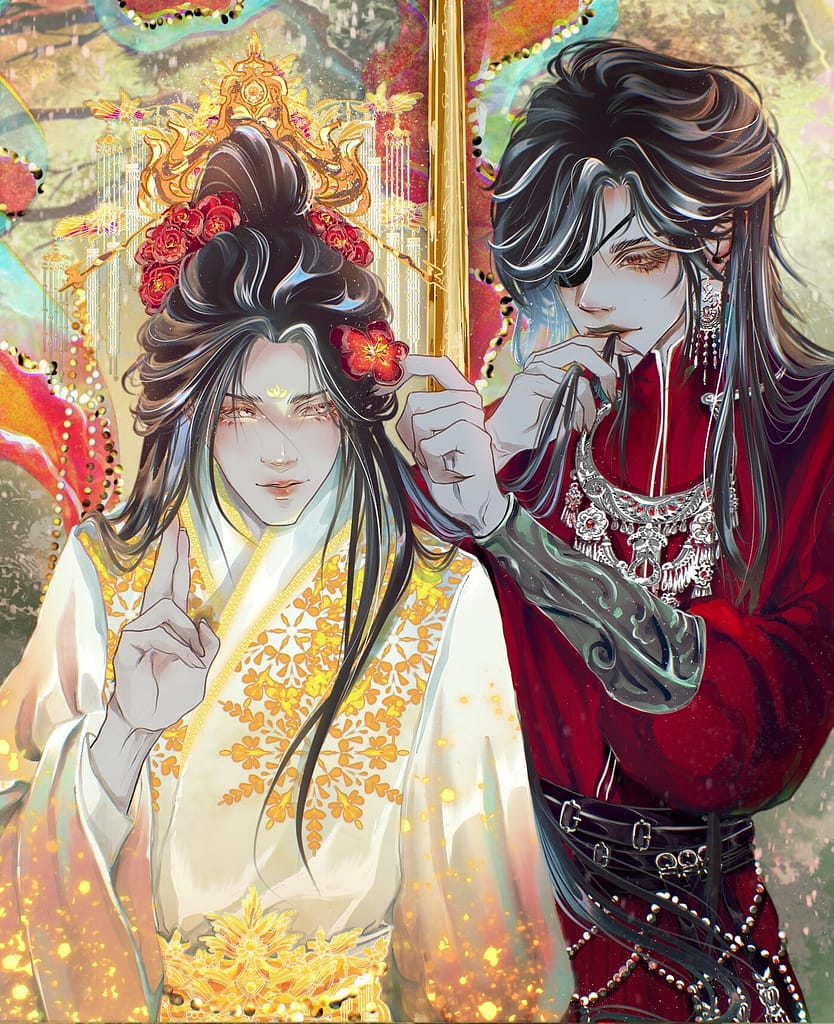
This struggle between humility and arrogance is externalized in the narrative, but also remains the key to Xie Lian’s character as much as the contradiction in Hua Cheng is key to his as well. Xie Lian begins his life at the apex of arrogance—a perfect prince devoutly pursuing the path of cultivation and ascension. Even in his early life, we see that he is unerringly confident in his path forward.
Xie Lian approached, took an incense stick, and also paid his respects with sincerity.
It was a moment before the State Preceptor finally spoke.
“Your Highness, the four of us have deliberated. In regards to the Heavenly Ceremonial Procession, there are but two ways to resolve the problem.”
“Please, do tell, State Preceptor,” Xie Lian said.
“The first method,” the State Preceptor said, “is to find the child who disrupted the procession, and then we shall conduct a ceremony. At the very least, one of his five senses must be sealed as penance.”
Xie Lian’s head shot up.
“No.” He then repeated definitively, “Absolutely not.”
The State Preceptor nodded. “I expected this response from you. So we’ve put the weight of our consideration on the second method.”
“Please, do tell,” Xie Lian said solemnly. “The second method,” the State Preceptor said, “is to have Your Highness publicly repent before the people of Xianle, ask the heavens for forgiveness, then face the wall in reflection for a month.”
“Not possible,” Xie Lian said leisurely.
The State Preceptor was taken aback. “We’re not really asking you to face the wall to reflect, you just have to look like you are… ahem.” He suddenly remembered they were before the statue of the Heavenly Emperor and immediately corrected himself. “As long as you are sincere, it will suffice.”
Still, Xie Lian responded, “No.”
It’s not only in his dealings with the divine might of the heavens that Xie Lian remains stubbornly certain of his own righteousness. If comes through as well in his interactions with the more earthly authority of his parents:
Qi Rong knew this very well and said with a sidelong glance, “No need for a flogging punishment. He belongs to Cousin Crown Prince; I don’t want to make things difficult. As long as he breaks his own arm and kowtows before me three times, I can let this go.”
The king nodded slowly to accept the decision. However, Xie Lian interjected.
“If you must punish Feng Xin, then you must punish me first. He’s my servant. First of all, he’s done nothing wrong, and second of all, if he was at fault, it was still done under my orders. I will take punishment on his behalf.”
Hearing him, rage flashed across the king’s face.
By and large, all fathers and sons in the world must go through this change. When the son is young, he idolizes his father as the greatest hero on earth, his own personal role model, and his worship is clear. However, when the son matures to a certain age, he starts to question everything his father does. This can even brew revulsion, until, in the end, neither side will acknowledge the other.
Even as calamity is visited upon Xie Lian, he maintains this hubris in thinking he can succeed against all odds.
Behind him, Mu Qing said quietly, “Your Highness, do think this through carefully. We can help for ten days, maybe twenty, but not a year or two. We can save one hundred lives but not a hundred thousand. You’re a martial god, after all, not the god of water. And even if you were the god of water, you couldn’t create water from nothing. If we can’t fix the root of this problem, we won’t be able to keep it going; our plans are inadequate, like using a cup of water to douse a burning cart of firewood.”
Xie Lian briefly paused in his step at Mu Qing’s words, but in the end he didn’t turn back. He waved, then continued on.
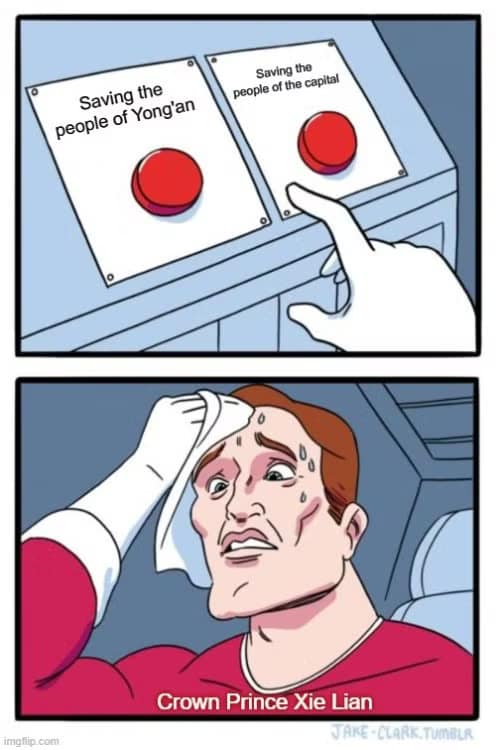
Certainly this wretched arrogance is punished (as we eventually find out, quite literally by god). And Xie Lian confronts his failures, experiencing the agonies of his fall from grace over and over again when he tries to rob travelers, when he confronts the thirty-three gods, when his parents commit suicide in an effort to relieve him of the burden of their care.
But through this all, Xie Lian maintains a core regards for his own capabilities. We see this shine through as he battles the thirty-three gods with a stick, nearly succeeding rather than backing down. We see this when he insists on winning at shattering boulders with your chest. While he is doing it in part to save himself and Feng Xin the indignity of being ejected as street buskers, he also insists on doing it himself and showing off the extremity of his own limits.
And so, both Xie Lian and the man lay down on the ground with slate slabs pressing down on their chests. Feng Xin was given a large hammer. He weighed it in his grip and was just about to smash it down when Xie Lian swiftly spoke up.
“Wait.”
The others were delighted. “What, do you admit defeat? It’s not too late to forfeit now—we’ll let you go!”
“No. I want to add another slab,” Xie Lian said.
The mob was shocked by this. “Are you crazy?!” “Didn’t you say it yourselves? This is a competition,” Xie Lian explained lazily. “There’s no difference in skill if we use one slate apiece, so how can we compare our abilities?”
The street performers looked doubtful; some thought he’d gone mad and others assumed he was bluffing. After much discussion, they stacked another stone slate on his chest.
After that, Xie Lian asked them to add another!
Now everyone was sure he’d lost his mind, and they added a third slate without further question. Thus, three heavy stone slates were stacked on Xie Lian’s chest, a rather terrifying sight.
Under the scrutinizing gazes of the crowd, Feng Xin raised the large hammer and smashed it down without blinking. The three stone slates cracked into multiple clean pieces. Xie Lian crawled up from the ground amidst cheers, uninjured and fine. He calmly dusted off his robes while everyone watched with slackened jaws. The leader’s face was pale, and his expression was dark.
Over the course of the story, we do see Xie Lian embraces humility in his outward mien; he becomes a junk collector, sleeps in a broken down shack, and laughs awkwardly at his own failures as a “general.” He doesn’t even hesitate to lie about erectile dysfunction to get out of awkward situations with ghost prostitutes.
We’re even introduced to Xie Lian this way, ascending for his third time to the disappointment of his fellow gods and the need to repay the damages he has wrought without a merit to his name. This turnabout is one of Mo Xiang Tong Xiu’s narrative accomplishments—we think we’re learning the story of a down-and-out scrap collector, not the story of the strongest martial god defeating the strongest of opponents.
But I believe it’s the outward trappings that Xie Lian learns to disregard by the time we meet him, not his own inner assuredness. Perhaps one of the reasons he has persisted for so long is because he believes so confidently in his own inner (and outer) strength. We see a little bit of this in Xie Lian’s interactions with Lang Qianqiu in the unrevised edition, but it comes through even more clearly in the revised edition. This is very evident in a duel that Xie Lian and Lang Qianqiu fight, in which the latter ends up humiliated:
After a while, Xie Lian again couldn’t take it any more and said, “What’s the matter with you? Have you completely forgotten all the essentials? Do you think this way of fighting is very fierce very mighty very powerful? You’ve got flaws all over you; if you continue like this, you will die by my hands within three moves.”
Lang Qianqiu had blue veins pop out on his forehead, “Shut up!”
How could he not know the essence of the World in Heart Flow? It’s just that, with the personal enemy before him, how could he maintain the grace? And if he did as Xie Lian said, it would seem like he was reminded by him.
What’s even more infuriating was that while he had lost the heart of a king, every move of the other party was calm, open, and righteous, like a perfect exemplar of the World in Heart Flow, and even if you measured it with a ruler, you couldn’t find any deviations.
Why! Why could a murderer with blood on his hands practice such an open and righteous martial art style, and practice it so magnanimously? As if he was truly upright and candid!
The more Lang Qianqiu thought about it, the more he resented it. Seeing his expression getting more and more violent, Xie Lian shouted, “Three. Arm, pull back!” “Pop”, Fangxin’s blade hit Lang Qianqiu’s forearm, and Lang Qianqiu dropped a cold sweat, feeling greatly alarmed.
If this strike wasn’t slapped with the side of the blade but cut straight with the edge, his arm would have been broken!
But for Lang Qianqiu, being chopped might have been easier to take, because there was a burning pain from the place where the sword blade had slapped him, like a child being slapped on the palm with a ruler by the teacher. But that wasn’t the end of it yet, and Xie Lian again shouted, “Two. Center of gravity, off!”
“Pop!” Another strike hit him in the chest.
Lang Qianqiu couldn’t help but reshift his center of gravity and snarled, “What are you hitting!”
Xie Lian backhanded another strike, “You are the one who wanted to fight! The last move, one. Feet, too light!”
The last strike smacked him on the leg. This was the most painful strike, and Lang Qianqiu also noticed that Xie Lian, he, he totally used Fangxin as a ruler!
Xie Lian then gave it a lift and sent Lang Qianqiu’s sword flying, “Three moves are over, and you are already dead.”
Author Mo Xiang Tong Xiu deliberately emphasized this as part of Xie Lian’s continued character in the revised edition, highlighting his tendency to let slip the veneer of humility and show his cockiness outright. In another example, we see this peaking out unconsciously during a scene exploring a dream realm with Hua Cheng, when Hua Cheng suggests he’ll face danger alone while protecting Xie Lian:
—He hopped off the swing, turned around and said with a frown, “Take ten thousand steps back, even if you don’t believe in yourself, you should still believe in me; even if an accident should happen, I’m capable of handling it. I know you are not afraid of the Brocade Immortal, but this is completely different from letting you bear his attack alone. I absolutely won’t agree, so –”
Xie Lian announced, “We will set off right away for the Brocade Immortal’s Mental State to find the source of his resentment. Now, immediately!”
He said these words completely without thinking, but as soon as he finished speaking, he was shocked to realize how pompous it had been, actually carrying a bit of the indisputable commanding tone from when he had been His Highness the Crown Prince. Softening at once, he dared not look at Hua Cheng, instead gazing into the distance, “Uh… … shall we go, San Lang?”—
Revised edition translation courtesy of clearnoodles, and huge thanks for the translation notes.
Xie Lian’s outward humility paired with his inner arrogance makes him an excellent foil for Hua Cheng, whose outer demeanor exudes confidence but whose inner life is full of self-doubt. While Hua Cheng battles between devotion and profanity towards his God, Xie Lian’s inner battle is between his own pride and humility—between being the mocked god of misfortune and the strongest martial god in the pantheon.
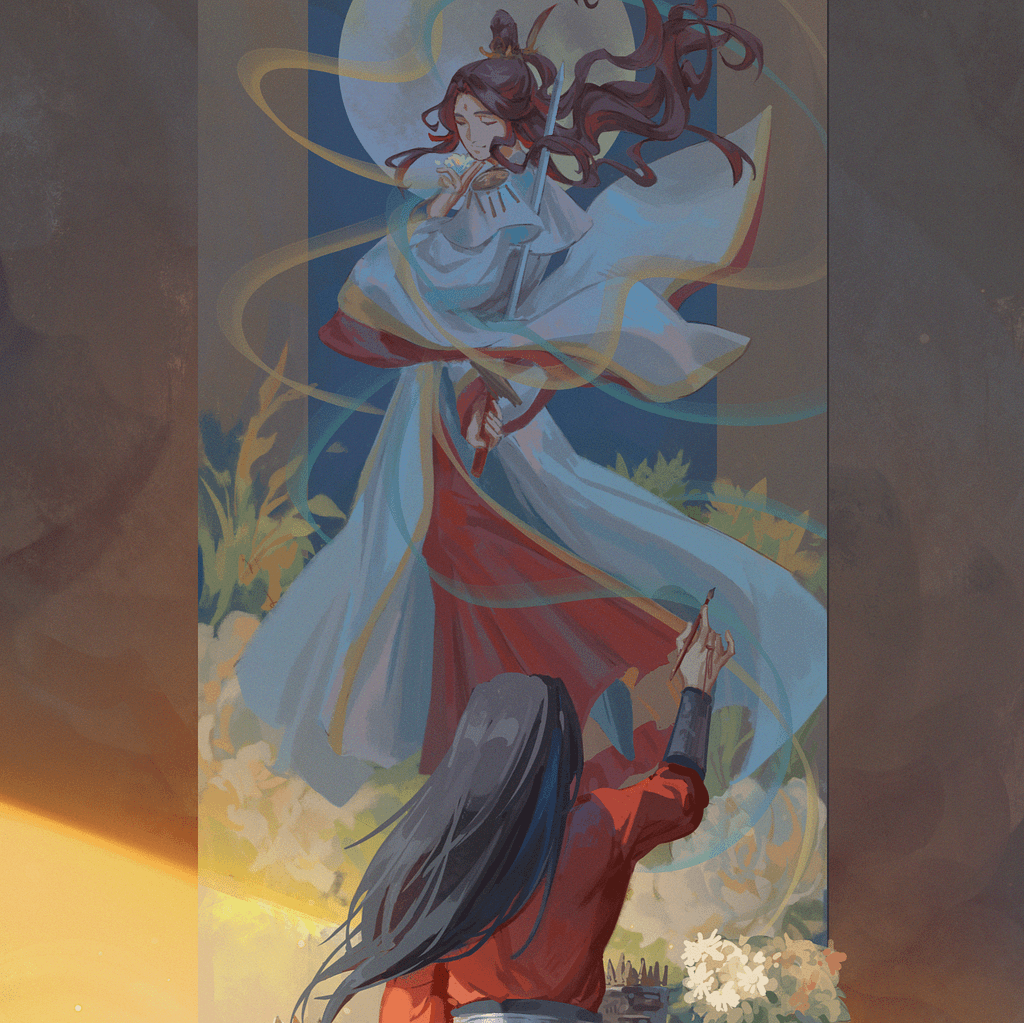
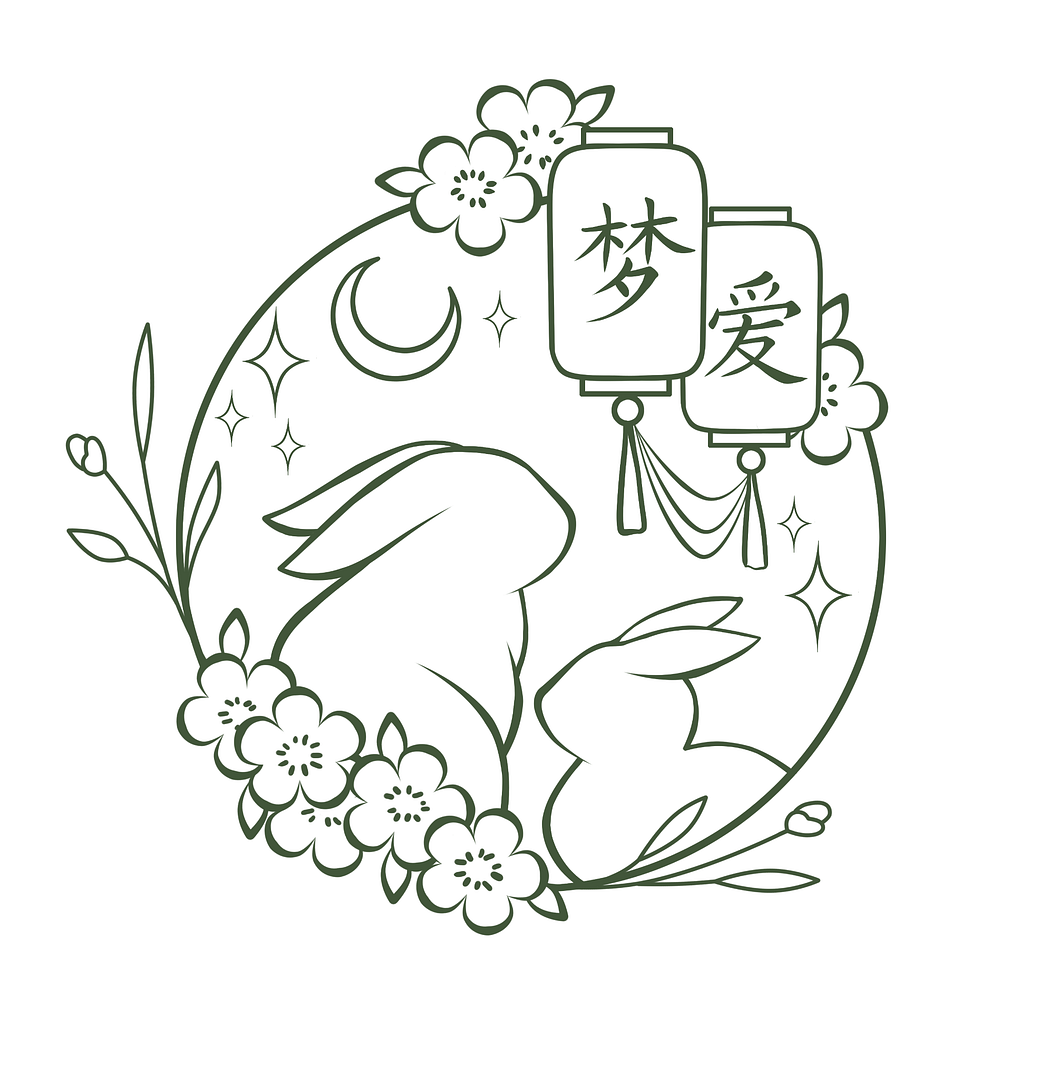

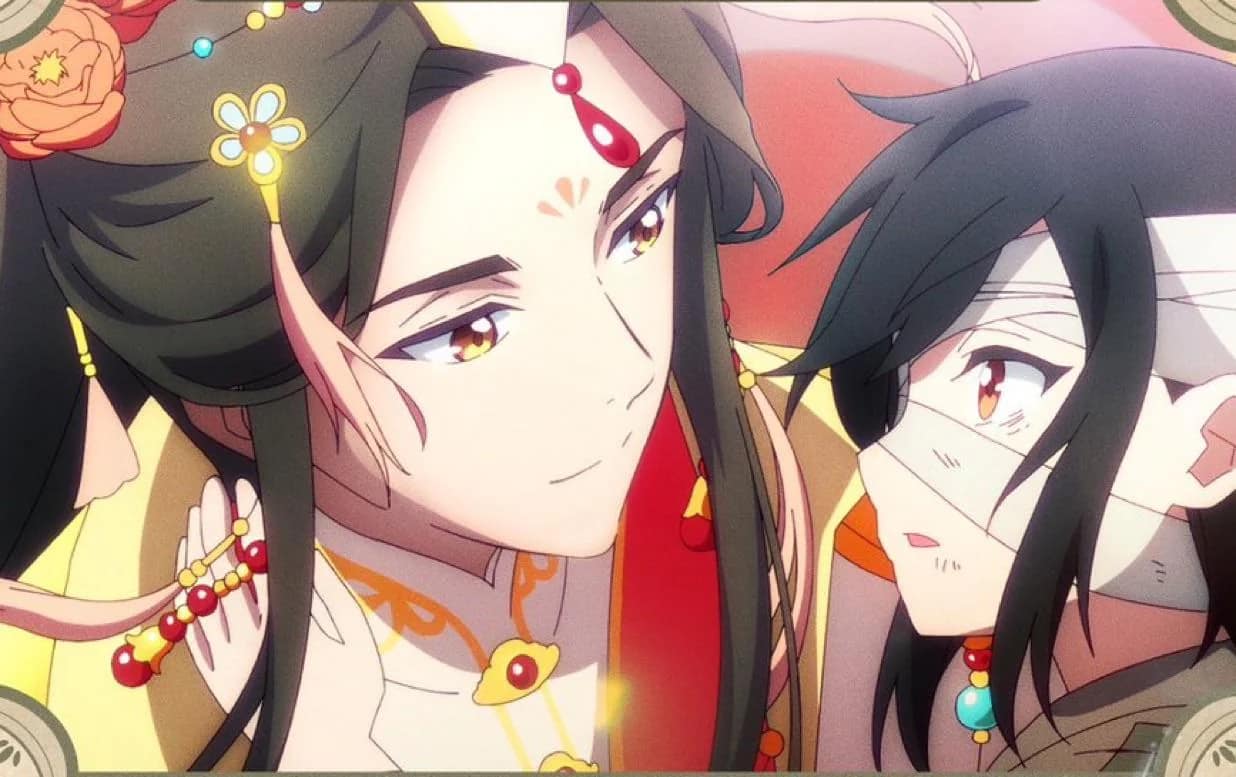

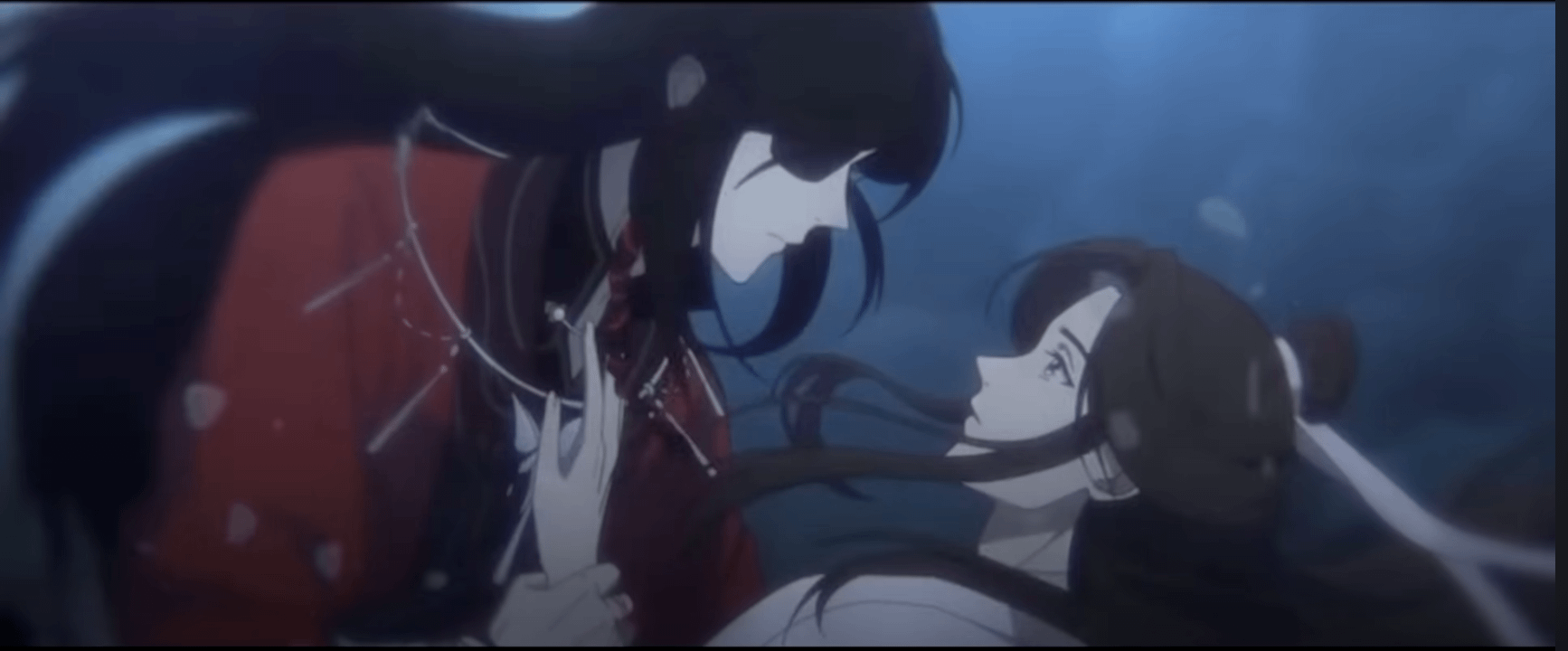
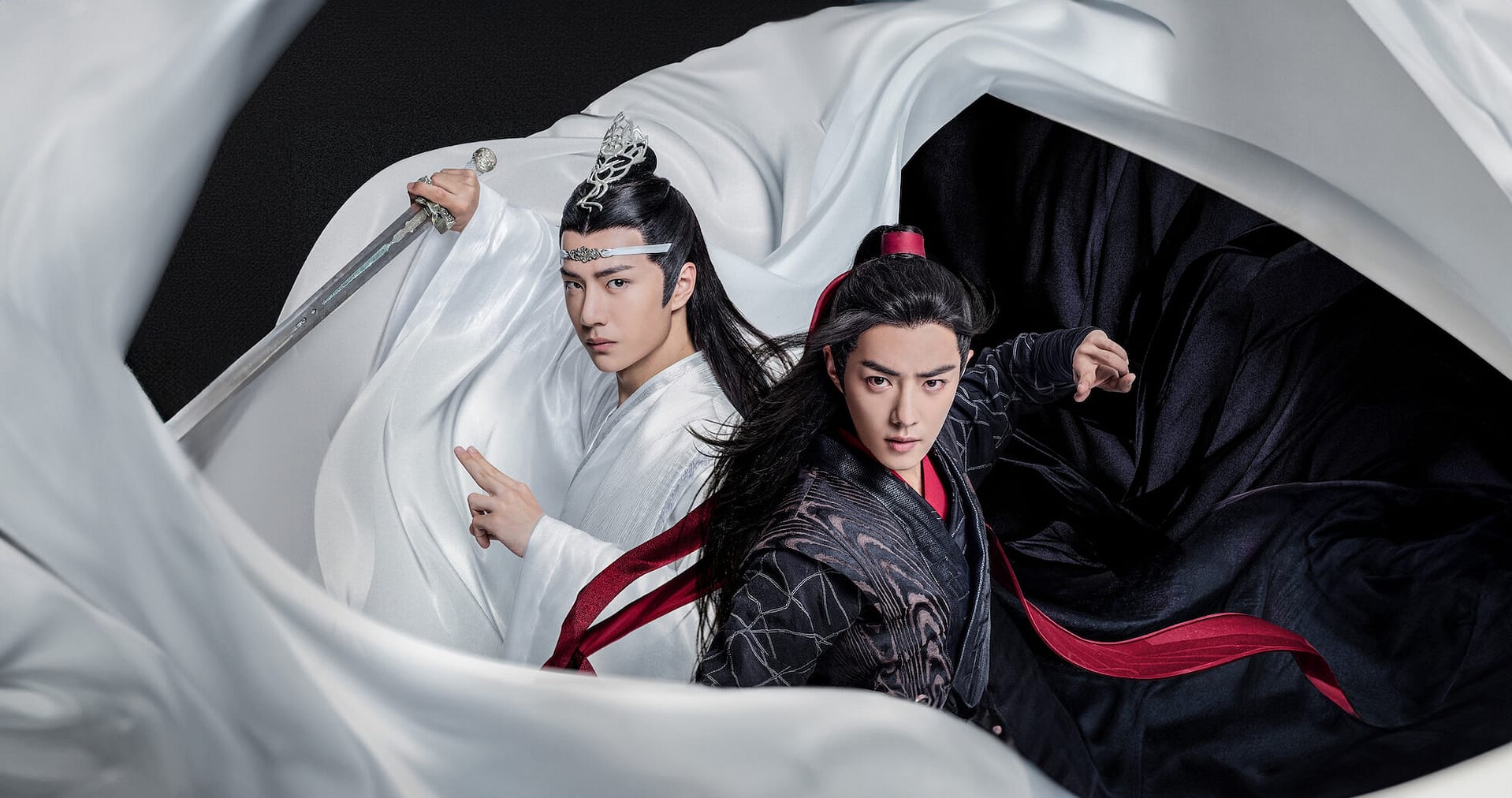


oh I really love this <3 I feel that Xie Lian can sometimes be fanonized as perfect/without flaws and it really undercuts what makes him so interesting and complex. Your analysis of him is beautiful. I really need to check out the revised edition!